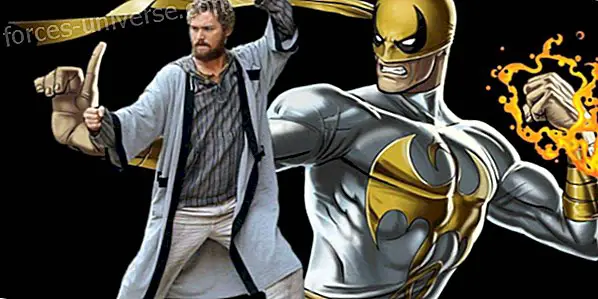 Defender of the idea of "responsible happiness", the interviewee bets on healthy and emotional human relationships as a way out of any crisis.
Defender of the idea of "responsible happiness", the interviewee bets on healthy and emotional human relationships as a way out of any crisis. One day the sociologist Roberta Paltrinieri stopped looking at stained glass. He reviewed his consumption habits and did not buy clothes again, among other customs he abandoned. “It was a trip inside of what was happening in the crisis of the society of abundance that led me and those around me to become aware, ” says Paltrinieri, a doctor of Sociology and professor of Sociology of consumption at the University of Bologna, the oldest in the western world. That is how he set out to direct his life and that of his family towards responsible happiness, a term with which he baptized his last book. “My subject of study arises from my self-reflection about my daily behavior and that of my family - it is sincere. And we decided to start, as a small core, a search for sustainable consumption behaviors. ”Their children, aged 8 and 12, grow up knowing that they should not waste water, that the garbage should be separated according to their raw material - organic, paper, plastic, glass- and that bartering with other families is fun, sustainable and feels good. “My life has not been impoverished. As a public employee teacher, it is true that I have my salary frozen for three years, but I also have the assurance that month by month I receive my pay. I admit that I have not felt the crisis that I see around me, but this does not imply that in me research modes have not been activated to find more virtuous forms of consumption, ”says the sociologist who also directs the Center for Advanced Studies on Consumption and Communication of the Alma Mater Studiorum of the University of Bologna and is part of the Research Network Sociology of Consumption. And there was Paltrinieri behind responsible happiness that, according to her, “is a different way of thinking about individual and collective well-being. It is the overcoming of a cultural model that made 'Consumption, then I exist' the leitmotif of the last thirty years, in favor of a cultural model that values relationships rather than status symbols ”.
Where does today's society look for happiness?
From the Aristotelian point of view, the concept of happiness refers to obtaining pleasure through an action. On the basis of this Aristotelian dimension, the consumer society has been built. In this system, through the objects of consumption, men should obtain that pleasure that, in some way, is presupposed for a certain happiness. The consumer society as we knew it in Europe, from the postwar period, that is, from the 1950s until the beginning of this crisis in 2008, promised to obtain pleasure based on paradoxically mechanisms that constantly produce unhappiness. Wanting to buy has been an imperative for the European consumer society. Consume and wish to continue doing so no matter how many assets are already owned. The problem is not the possession of goods but the insatiability: a constant promise of something that should be desired and that once obtained does not give satisfaction and therefore resends the constant need to continue in this action. From here the processes of compulsive consumption are born. European and North American society are sick societies from the point of view of compulsivity, because through this act we try to calm a craving that is within us and that is the existential state of subjectivity in a society that has progressively made it disappear Other forms of pleasure.
With this diagnosis, is it possible today to be happy?
It is necessary to overcome the instrumental dimension of individual well-being to stimulate a new model that puts collective well-being in the center understood as a relationship that builds trust, reciprocity. Happy societies are those that produce relationships, bonds . The unhappy are the ones who sell products in the place of relationships. In short: happy people generate links ; the unhappy buy compulsively.
You have pointed out that happiness and well-being have not been adequately measured
The first text that attempts to overcome the idea of GDP as the only indicator of well-being is the study that former French President Nicolás Sarkozy commissioned in 2008 to economist Joseph Stiglitz, where a series of indicators that shed light on how to measure well-being is used. From this, in Italy we have developed the index of Sustainable Equitable Welfare -Benessere Equo e Sostenibile (BES) -. It is interesting because it focuses on the relational good. Somehow he says that the protection of the environment and relationships are essential to measure well-being. A fundamental element that is at the base of this new model that I am trying to promote responsible happiness is the participation dimension. People who participate in active terms within the community itself are happier people.
How do you talk about collective well-being in a society of such inequality?
The economic model to which the consumer society has accustomed us is a model in which the determinant is the economically measured individual welfare. The real problem is that individual welfare must be run to collective well-being. In fact, people do not live alone, isolated. But the true possibility of producing collective well-being stems from the possibility of producing relational goods. An important thing within a community to develop well-being is not so much money as a good quality of human relationships. Collective well-being must be produced through qualitatively good human relationships. Relational goods produce trust, exchange, reciprocity. Relationships also become important in terms of inequality: if I produce relationships within a system, I produce forms of solidarity and the form of solidarity produces social cohesion. Where inequality exists, these solidarity mechanisms can be activated. If I produce individualism, I do not produce social cohesion.
It seems that in today's society only those who have time or those who embrace a cause and militate in favor of it actively participate. How do you create this awareness of shared responsibility in the average citizen?
In Italy we are not in an ascending phase of democracy but decreasing. Governance crisis, high levels of distrust, issues that may be familiar to you That is why it is necessary to create a new trust pact. And the shared social responsibility in response to the crisis belongs to us all. We have to make the leap towards a collective theory of relationships. Find out how we can respond to the crisis through our specific capabilities.
What is the main feature of social behavior today?
Today it is difficult to talk about a theory of collective action because in fact we live in a society where socialization processes receded in their ability to orient relationships. Today more than ever, in this I also see the reflection of the dominant neo-liberal economic paradigm, we speak of individualized subjects. In fact, man is increasingly alone and must respond to the challenges of a global society. We have lost the normative values that guided us. It is as if the individual constantly had to reflect on their own actions. Decreased the mediation of the structure. In thinking, social behavior has receded. This means that there is no more a normative frame of reference, but that it is necessary to proceed by self-reflection. It is a constant need to find within itself the forces, the capacities to respond to the emergency or the urgency that the social field imposes on it.
In you, the crisis was an occasion to rethink your behavior as a consumer. The idea of crisis as an opportunity, can it be applied to all social classes?
It is clear that from a systemic point of view this can be an opportunity for the middle and upper classes of reflection to rethink their own behavior. For a matter of unsustainability, it is necessary to think of a new model for the consumer society as we know it so far. It is clear that the middle and lower sectors that are experiencing great wear today do not have the same possibility. The crisis as an opportunity also confronts us with the problem of inequality. In Italy, as surely also happens in Argentina, what is happening with respect to the past is that we are seeing that the mechanisms of social ascent linked, for example, to instruction, do not work anymore. . While in the past it was normal for the son of the peasant or the worker to become a doctor, today that social elevator no longer exists. We are witnessing a self-reproduction of castes and there is no longer an upward mobility mechanism between generations. It is the inescapable thing of a destiny: the children of the lower classes will not have the possibility of overcoming their own status. The new generations are experiencing worse living conditions than those of their parents.
Is this valid for rich and poor?
Yes The central element in this poverty process is that the children of the upper-middle class, the children of the bourgeoisie, also experience worse living conditions than those of their parents. I am sure that if my children do not go abroad and stay in Italy, they will not have the condition of life or the opportunities that I have had.
From the Argentine perspective, it is as if Europe, that First World of our imaginary, was discovering something that we, unfortunately, already know in our own flesh in matters of crisis.
In reality, what many Latin American countries, Argentina in the first place, have experienced as survival techniques in a globalized world - always in favor of a First World that as a result of this unequal exchange was favored -, today became the techniques that we are Watching to respond to our own crisis. Argentines can teach us a lot about it.
Article by MARINA ARTUSA, seen at clarin.com
“Happy people generate links; the unhappy compulsively buys ”






